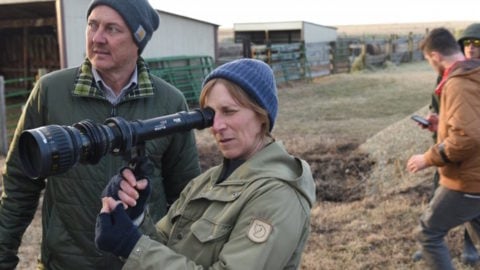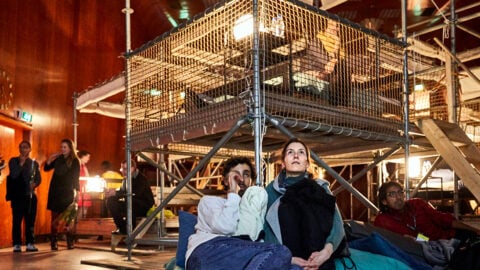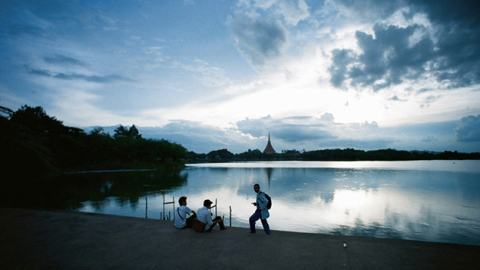News to Me: Apichatpong Weerasethakul, Lisandro Alonso, RIP Roeg and Bertolucci
Apichatpong Weerasethakul’s Memoria
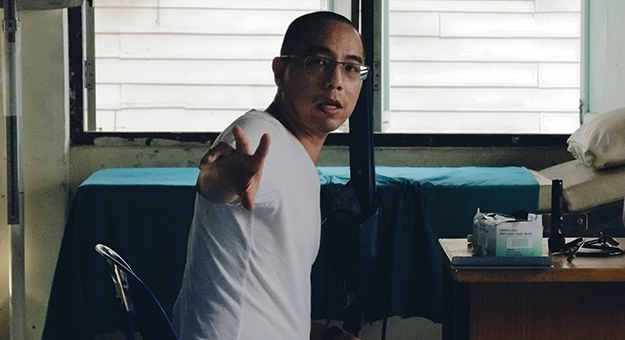
Apichatpong Weerasethakul directing Cemetery of Splendour
In the three years since Apichatpong Weerasethakul’s Cemetery of Splendour debuted at Cannes, the Thai director has kept busy with a wide range of cinematic endeavors, including anthologies, documentaries, museum pieces, sleep-in movie theaters, and his most recent short film, Blue. But his next project, Memoria, marks a major shift for the Palme d’Or–winning filmmaker: taking place in Colombia and starring Tilda Swinton, the movie is set to be Apichatpong’s first feature shot outside of Thailand.
“At first, I was attracted to the Amazon,” Apichatpong told Film Comment. “My movies in the past, when they feature the jungle, they’re actually inspired by adventure novels written by Thai writers, who were themselves inspired by the Amazon—especially novels written by the West during colonial times where the jungle is romanticized. So I was thinking I should go to the source of these inspirations.”
Despite initially being drawn to Colombia’s natural beauty, in touring the country and speaking with local artists to help prepare for the film, Apichatpong quickly found that he was “more attracted to the cities, the industry, and the people’s memory.”
“I feel conscious about the political situation at home, and so I cannot help but listen and try to find out what’s happening politically,” he continued. “The film was developed from this standpoint. It’s not a political film, in the end, but it has some remnants of these memories that are kind of available in the air.”
Though collective memory, local myth, and latent political commentary are all familiar themes for the filmmaker, Memoria offers a chance to approach them from a new perspective. “I cannot represent a genuine memory there,” Apichatpong noted. “As an outsider, you just feel like you cannot and will not understand certain things. You’re really on the outside.”
Embodying this feeling, Apichatpong “imagined a character who just happened to be there—not Tilda, but another character—who’s trying to absorb all these memories, but he’s not human. Maybe an alien, I don’t know, but someone just trying to record.”
The emphasis on recording is particularly pertinent for the director, who recently received the International Federation of Film Archives’ annual FIAF Award, joining the ranks of previous recipients Martin Scorsese, Ingmar Bergman, and Agnès Varda. On the occasion of the institution’s 80th anniversary, FIAF president Frédéric Maire described Apichatpong as “a director who embodies true commitment to the art of film and engagement in its preservation.”
But Apichatpong also envisions a rapidly changing future for cinema. “I think it’s quite natural that we move on to virtual reality, because I’ve always related films to dreams,” he said. “Virtual reality will allow us to turn our head around and [for it to] be more like we’re dreaming. That’s quite a logical progression for me.”
Films on the Horizon

Wanuri Kahiu directing Rafiki
Jauja director Lisandro Alonso is developing his next film, Eureka, which received backing from the Hubert Bals Fund (as did Memoria) … George Miller has started production on Three Thousand Years of Longing, starring Idris Elba and Tilda Swinton (and apparently having something to do with a genie) … Wanuri Kahiu, who directed Rafiki, the first Kenyan film to ever premiere at Cannes, has started production on her new movie Covers, described as an L.A. romance … The Brutalist, Brady Corbet’s follow-up to Vox Lux, will focus on husband-and-wife concentration camp survivors, charting 30 years in their lives.
Readings
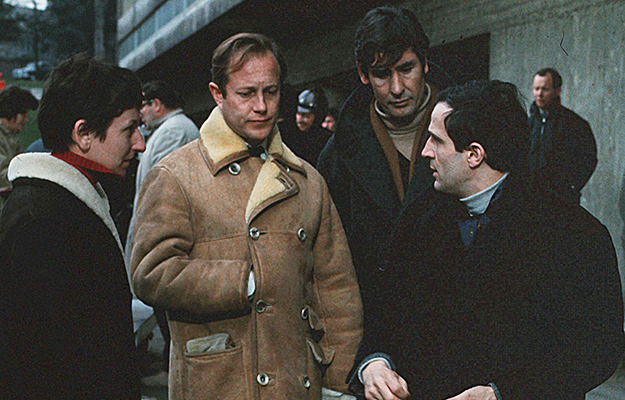
Nicolas Roeg and François Truffaut on the set of Fahrenheit 451. Photo: Anglo Enterprise/Vineyard/ Kobal/REX/Shutterstock
✸ Two greats of cinema passed away in the last week: Nicolas Roeg and Bernardo Bertolucci. Here is our interview with Bertolucci on the occasion of his final feature, Me and You (2012), and Nicolas Roeg’s remembrance of François Truffaut, for whom he shot Fahrenheit 451.
✸ Paul Thomas Anderson and Barry Jenkins discuss If Beale Street Could Talk and filmmaking technique.
✸ The Cinematheque in Paris is running a series from November 28 to December 15 on the history of cinema as seen by André Bazin (“L’histoire du cinéma vue par André Bazin”), on the occasion of the publication of Bazin’s complete writings.



